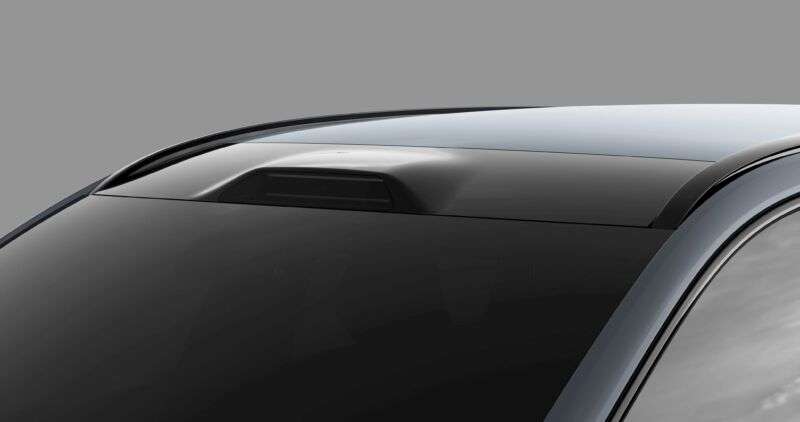
Volvo plans cars with lidar and “eyes off” highway driving by 2022
High-end lidar once cost $75,000. Luminar says its lidar costs less than $1,000. …

reader comments
69 with 45 posters participating, including story author
Volvo will begin producing vehicles with powerful lidar sensors from startup Luminar, the Swedish company announced on Wednesday. It’s a significant milestone for the automotive industry as well as a major coup for Luminar. Volvo invested in Luminar in 2018.
Lidar sensors will be available starting in 2022 as part of the SPA 2 architecture—the successor to the SPA 1 architecture that underlies many of Volvo’s cars today. While Volvo hasn’t announced specific model information, this likely means that the lidar will be available on vehicles like the XC-90 starting with the 2023 model year.
While some leading high-end lidars spin 360 degrees, Luminar’s sensors are fixed in place with a 120-degree horizontal field of view. Volvo plans to integrate Luminar’s lidar into the car’s roof just above the windshield, where it will have a good view of the road ahead of the vehicle.
Luminar CEO Austin Russell says the announcement represents years of work bringing down the cost of its technology. Luminar’s technology is built around a relatively exotic type of laser operating at 1,550nm. The fluid in the human eye is opaque to light at this frequency, allowing lidars to use higher power levels without running afoul of eye safety regulations. That helps Luminar’s lidar achieve its impressive 250-meter range.
But the downside is that transmitting and receiving a 1,550nm laser light requires the use of unusual and expensive semiconductor materials like indium-gallium arsenide. That’s in
Continue reading – Article source




